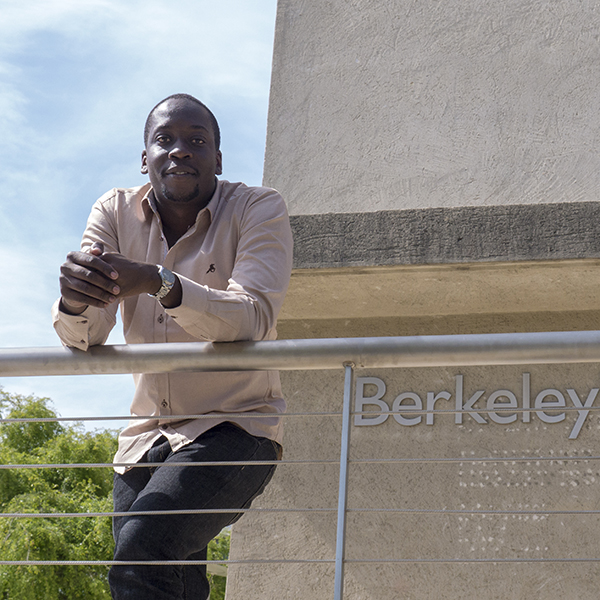 Home Country: Uganda
Home Country: Uganda
University: Makerere University
Profession: Founding and managing partner at Bytelex Advocates
My parents are both teachers, a university lecturer and a secondary school teacher, they took education seriously, so it was important to them that I went to the best schools. This was challenging for them given that teachers don’t make much money. A turning point in my life was when I began secondary school and discovered the computer. I began spending most of my time in the computer lab and picked up skills in web design and then app design when I got to university.
When I began law school I did everything possible related to computers and technology. Around the same time, the tech ecosystem was picking up in East Africa because of the SEACOM cable (a high speed internet network). Many incubation hubs began setting up and I spent most of my time after class in these incubators and attending startup-pitch sessions.
Having a tech background at that time was a big advantage because no one was thinking about how to represent startups, investors, and the critical technical issues that all the parties required.
So that’s how Bytelex Advocates was born. It wasn’t easy to convince my classmates to start a small firm focused on tech startups that don’t have any money at first and often fail. But we discovered that most of them were failing not because of the idea or lack of investors, but they just didn’t have the business and legal advice to structure and run a startup the right way.
The law in East Africa is not designed for startup companies, so you have to adapt the law in a way that will work for the clients. It’s very challenging. You have to think differently, but at the same time make sure what you are doing is legal and effective.
That’s one of the main reasons I came to Berkeley. A lot of the startup financing instruments and tech law as we know it has been developed in Silicon Valley. So, coming here to learn how these laws work and bring that knowledge back and apply a comparative analysis to develop strategies that can actually work for startup companies in Uganda and East Africa generally has been extremely valuable.
Also, since we are one of the very few tech startup law firms in East Africa, we work across many different technical industries—fintech, biotech, artificial intelligence. This is some cutting-edge stuff for lawyers that do not have deep training in technology. So coming here lets me learn from professors who are experts in these areas and develop partnerships with professionals that I can reach out to for advice.
Berkeley is known around the world as a leader in the tech space and is close to Silicon Valley, the world’s most advanced startup ecosystem, so earning my LL.M. here really benefits my firm back home, both in reputation and connections.
During my first summer, I was able to identify several startups who were doing work in East Africa that had headquarters here in the Bay Area. Adam Sterling (director of the Berkeley Center for Law and Business – BCLB) invited me to a few sessions organized by BCLB where I met alumni and other startup-industry professionals. That’s how I connected with Zipline.
Zipline is a startup based in San Francisco that uses drones to deliver medical supplies, like blood and vaccines, to remote areas in need. They wanted to expand services to Rwanda and Tanzania. So they needed lawyers that could work with the governments of those jurisdictions and handle the regulatory process relating to drone technology. We have been able to meet this need by expanding services to those countries.
It’s been extremely challenging, but looking back, I would do this over and over again. It’s very rewarding to help build companies from scratch in a region that needs innovation that will hopefully lead to jobs. It’s equally satisfying to adapt the law in East-Africa to meet the dynamic needs of startups. I hope that my connections from my time in Berkeley will help build a pipeline between bigger international tech companies and the budding unicorns that are serving East Africa.